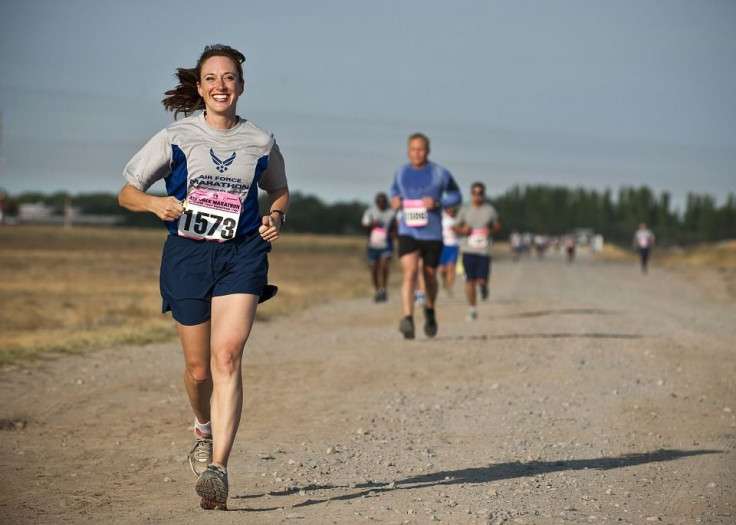Is Running Contagious? Sharing Workouts On Social Media May Motivate Friends, MIT Researchers Conclude

Sharing your workouts on social media may motivate others to exercise more, according to a new study published in Nature Communications.
Researchers at the Massachusetts Institute of Technology tracked the exercise patterns of more than one million runners over 5 years. The fitness tracking data revealed exercise may be “socially contagious.”
“Knowing the running behaviors of your friends as shared on social networks can cause you to run farther, faster, and longer,” said study author Sinan Aral, in a news release.
Read: Ultra Runners May Feel Less Pain Than The General Population, According To Research
Aral and his colleague’s data included the runner’s geographic location, social network ties, and daily running patterns, as tracked by wearable fitness devices and running apps. More specific measures included daily distance, duration, pace, and calories burned.
The study authors found socially sharing personal running data can inspire others, especially men.
“On the same day, on average, an additional kilometer run by friends can inspire someone to run an additional three-tenths of a kilometer and an additional ten minutes run by friends can inspire someone to run three minutes longer,” the authors wrote.
One of the key findings of the data revealed many of the runners often compared themselves to those ahead of themselves to motivate their own self-improvement. However, the data also revealed runners made downward comparisons, too. When a runner compares themselves to others who may not be running as fast or as far, they may feel motivated to keep going strong “to protect one’s superiority.”
Additionally, the researchers found differences among genders. Men were motivated by both men and women, whereas, women were only influenced by women.
One of the limitations of the data is that it is not representative of the average person, but rather the 1 in 5 Americans who owns a wearable device and the over 100 million worldwide who use fitness tracking devices.
Previous research has attempted to find the same contagion effect in obesity and smoking, but results have varied, according to an editorial published in Nature.
Published by Medicaldaily.com



























